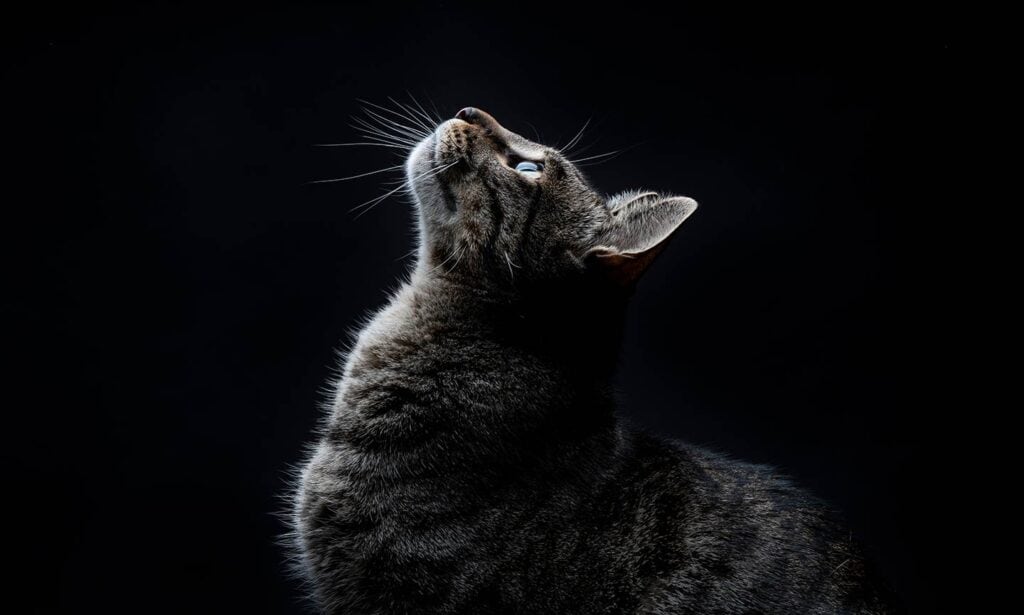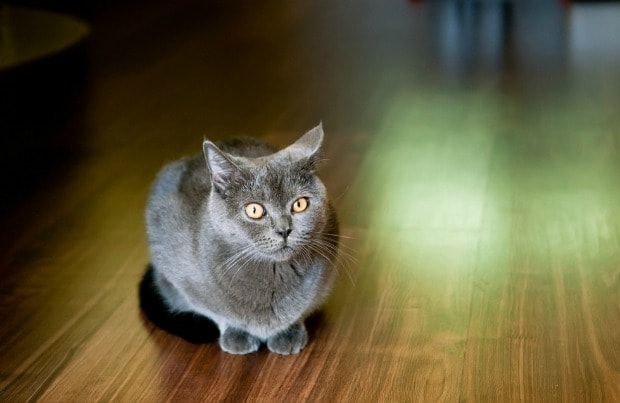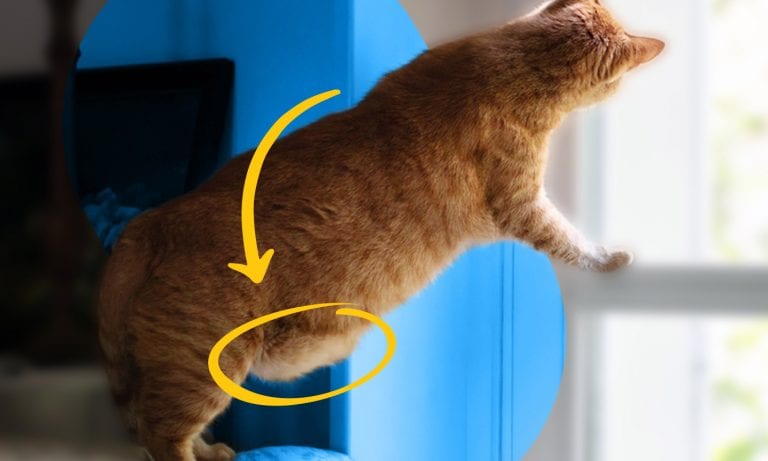Many cats are active during the night, so if you’re a cat parent, you might wonder: Can cats see in the dark? Should you leave a night light on for them when you go to bed, or will they be safe and happy without one? We took these cat vision-related questions straight to the experts—veterinary ophthalmologists—and here’s what they had to say.
In This Guide
Do Cats Have Night Vision?
Cats are crepuscular creatures, which means they are most active during twilight. Outdoor kitties will prowl the neighborhood or roam around the house if they are indoor cats, which begs the question: Do cats have night vision?
“Cats can see very well in low-light conditions, but this does not mean that they have night vision like the one we can get from night-vision goggles,” says Dr. Paola Cuevas, a Mexico-based veterinarian, MVZ and behaviorist with Hepper.com. “This means that in conditions where it is too dark for us to see, cats can see very well.”
A common misconception about cat vision is that they can see in total darkness. However, Ceuvas says that’s not true. Cats have better night vision than the average human (and maybe even than the average dog), but some amount of light is required for a cat’s eyes to see.
“Cats have several specific adaptations within their eyes to help them have enhanced night vision,” explains Dr. Kristin Fischer, DAVCO, a veterinary ophthalmologist at Animal Eye Country of the Lowcountry, in Mount Pleasant, South Carolina.
According to Fischer, these adaptations include:
- More rod photoreceptors: The increased number of rod photoreceptors within the retina are responsible primarily for dim-light vision. Because a cat’s eyes have more rods than human eyes, your feline friend sees better in the dark than humans can.
- Tapetum lucidum: This is a reflective structure in the eye beneath the retina that acts as a reflective layer or mirror to reflect light in the eye. The reflection of light within the eye helps stimulate more of the photoreceptors to allow improved vision in dim- or low-light conditions. It’s also the cause for what we refer to as “eyeshine” in cats (and dogs, too).
- Slit-shaped pupils: Cats have slit-shaped, vertical pupils that dilate very widely, creating a large opening for light to enter at night.
“All of these things combine to help cats see well in the dark,” Fischer says.
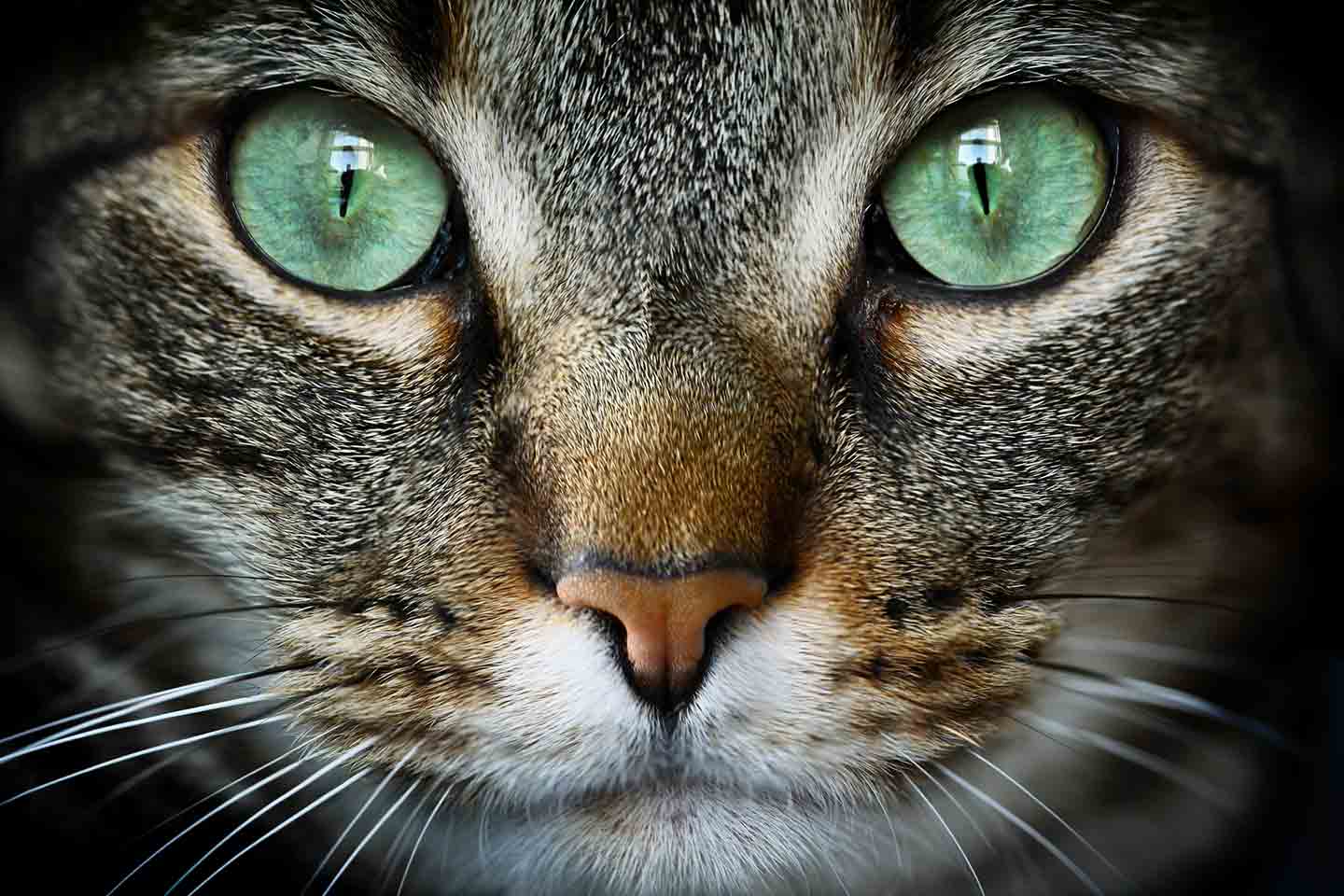
How Your Cat’s Vision Is Different From Yours
Cat eyes are generally very similar to human eyes. Both are technically trichromatic, meaning the eye contains three kinds of cones to see red, green and blue. But how cats see the world is more akin to a color-blind human. Sure, cats can still see blue and green, but they can get colors like red and pink, or purple and blue confused with one another.
“Humans can see a full spectrum of colors since we have three different kinds of cones to perceive a combination of red, yellow, and blue,” Cuevas says. “Cats also have these three receptors, but in numbers much lower than what we have in our eyes. Therefore, it seems like they cannot see as many color variations as we can.”
Another way cat vision differs from human vision is in their visual acuity, or sharpness.
“Cats are also nearsighted but cannot clearly see objects as far away as we can,” Cuevas says. “We believe they can see blurry objects from afar and a clear, crisp image from nearby.”
Like dogs, cats are also better at detecting movement than they are shape or color. For humans, it’s the opposite.
“Cats have a great advantage to see in very low light conditions, while our eyes need light to perceive the shapes and colors,” Cuevas says. “Cats can also better detect motion when compared to humans. This is because they have more rods in their retina than we do.”
Cats also have a faster flicker fusion frequency (FFF), which is the rate at which intermittent frames of light are perceived as a steady, continuous picture. The human eye can only detect flicker at 50 to 90 Hz, but because cats have a minimum light detection threshold of up to seven times less than that of humans, they only need one-sixth of the amount of light humans need in order to see.
Does My Cat’s Breed Affect Their Vision?
Do some cat breeds see better than others—at night or otherwise?
“In general, cat breeds across the board have very similar vision acuity when it comes to both day and night vision,” Fischer says, “but some breeds are more prone to genetic eye-related diseases that can affect their ability to see well.”
Cuevas adds, “Genes play an important role in all aspects of an animal’s health, and some breeds are predisposed to suffering ocular problems that might affect their vision.” Cuevas says some of the breeds prone to genetic issues include:
- Abyssinian cats: This breed is prone to progressive rod-cone degeneration and rod-cone dysplasia.
- Siamese cats: This breed is at higher risk for glaucoma, and lacks normal levels of pigment in the retina, which also makes them prone to vision problems.
- Burmese and Persian cats: These two breeds also have higher chances of glaucoma.
“Besides the breed predispositions,” Cuevas says, “the skull shape plays a role. Brachycephalic or flat-faced cats have more protruding eyes that are exposed to the elements, which often leads to dryness, damage, and irritation or trauma-induced ulcerations.”
Additionally, skull shape also affects a cat’s peripheral vision. The further a cat’s eyes are from each other, the more they can see in their peripheral vision.
Can Cats See Better Than Dogs at Night?
Both cats and dogs have increased vision in low-light situations, especially when compared to human vision. However, most veterinary ophthalmologists agree that cats actually fare better at night than dogs.
“Both cats and dogs can see well in low-light conditions, but cats have an advantage even over dogs as their eyes’ anatomical structures allow them to make the most out of the little bit of light available,”Cuevas says.
Fischer adds that “Cats can see better than dogs at night [because] their eyes are bigger in proportion to their skull size. Their pupils allow more light through, and the cat’s tapetum lucidum has a superior efficiency to reflect light.”
Why Do My Cat’s Eyes Glow at Night?
Our pets’ eyes glow in photos and at night, too, but don’t worry—it’s totally normal. It’s known as eyeshine, and the science behind it comes back to the aforementioned tapetum lucidum, the part of a cat’s eye that acts as a reflective layer.
“Cats’ eyes have a mirror-like structure located behind their retina,” Cuevas says. “The tapetum lucidum reflects the light, making their eyes look like they glow in the dark.”
This special layer of reflective cells behind the retina, at the back of the eye, is key to a cat’s improved visual acuity at night. However, humans don’t have this structure in our eyes.
“Humans, unlike cats, do not have a reflective tapetum lucidum to enhance light in the eye,” Fischer says. “The rod photoreceptors are responsible for dim-light vision. Humans have six to eight times fewer rod photoreceptors per square millimeter of retina compared to cats.”
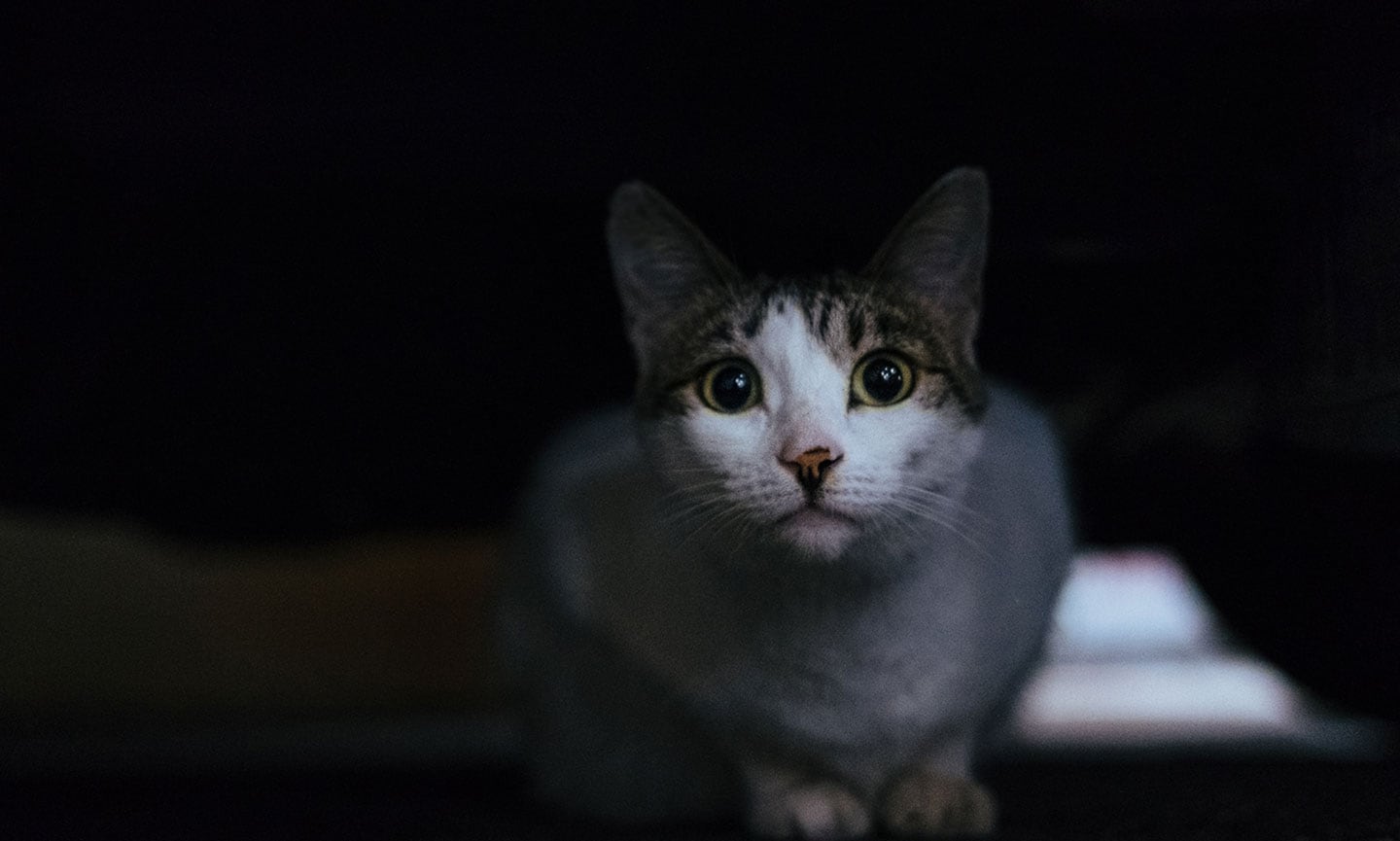
Nighttime Safety for Cats
Cats can’t see if there is no light whatsoever, so if your cat is a night owl, it may help to make adjustments around your home so they can more easily navigate.
A glow-in-the-dark cat collar, like this one from Frisco, can provide the little necessary light a cat needs to make their way around the house. If you let your cat out at night, this collar can help you locate them more easily, too.
Similarly, this Nite Ize keychain glows in the dark like a small night light, which means it also sheds light on an otherwise dark room or yard while your cat roams in the middle of the night.
More About Cats at Night
Share:
